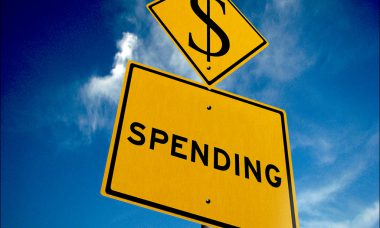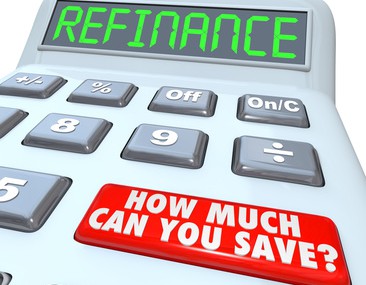
by admin | Bankruptcy, Consumer Proposal, Credit Counseling, Credit Repair
Credit world is a risky world. You need to be careful with your moves, as they are all recorded and can be used against you when necessary. Your bad credit habits and credit mistakes become a huge problem, if not addressed at the right time.
If you are new to the credit system or simply do not have the habit of maintaining your cash wisely, it can be an unfavorable situation for you. Is it never too late to learn? No, not in the credit world! The sooner you learn what credit mistakes you need to avoid, the sooner you will arrive at the safe side of the shore.
Not organizing your expenses and bills
As we said, everything is recorded and reported in the credit world. Your credit history matters the most, and you don’t want anything to stain it. However, if you are not habitual of being on time, you will probably end up with a bad record.
Make sure that you pay all your bills on time and separate your expenses so nothing becomes an obstacle in your next payment. There are many services available online that allow you to arrange your bills and expenses accordingly, with timers and calendars and calculate the amount for every payment. Use them and do not make the mistake of being late. Time is money here – literally!
Being ignorant to the interest charges and rates
It is not wise to not be aware of how much interest you are being charged on every transaction you make and at what rate. Whenever you go for getting a credit card, you must make sure the rates you are being charged, so you can compare it with the other options you have. In addition, it also helps when you are taking a loan. You would not want to be stuck in a loan that charges more interest rate than the other option you could have chosen.
Keep your credit limit down
It is like not being given enough money in hand, just so you will not spend it all at once. What happens is, when you know you have a greater credit limit, you are tempted to make more purchases, and that too recklessly, with a hope that you will somehow deal with it later. Do not do that. Do not fall into the trap of credit card companies, which lure you in by offering higher credit limit.
Giving your credit card to someone else to use
Trusting someone with your credit card is actually a stupid and risky thing do. When you lend your credit card to someone to use, they will make purchases that you will not have any control over. They might not be aware of the interest charges and the rates that comes with each type of transaction. All of this combined will become a problem for you, and if they make any purchase that are illegal, it is you who will have to bear the consequences.

by admin | Bankruptcy, Consumer Proposal, Credit Counseling, Uncategorized
Being in debt is the last thing that anyone ever wants. Somehow it’s something all of us end up being in one way or another. The economy is just not that good and no matter how hard we work to make ends meet, sometimes it is just not enough. Inevitably have to rely on money granting genies.
However, there comes a time when we all think of paying it off and starting fresh with no burden on our shoulders. We make plans and lists of things we would not do in order to pay back the amounts we owe so we can finally move forward.
Just to make the process easier, here are the three basic and easy ways presented which you can work with to lessen the burden from your hard-working shoulders.
Cut Down The Expenses – Temporarily
The first instinct that we feel when we are in such a situation, Is to cut back on expenses in order to save more. And that should be the first step. You cannot start saving money to pay off your loans by cutting down impulse buying decisions. You do not have to put a hold on every expense but only those without which you can still go about your day, for example eating out, online shopping, ordering late-night food, or buying that green scarf. Of course, this will only be for the time being, until you save enough and pay off at least some significant amount of your loans.
Get A Side Job
If you are working a shift in the day and have enough time at hand to do some extra work, it is always a good idea to take on some part-time jobs to get in that extra cash. You can freelance on the internet for writing companies, for digital advertising companies, or simply take neighbors’ dogs out for a walk every morning. This will take away the extra pressure off you that comes with trying to live on a budget. This way you will have more to save and a little extra to spend on yourself.
Take Care Of The Small Loans First
When in debt, we are tempted to pay off the larger ones first. However, that often leads to the accumulation of many small loans, which ultimately become huge. Therefore, it would be wise to list down all your loans. Separate big and small and begin with paying off the small ones until you are done with them, then move on to the bigger ones. This will not only make it easier to focus on paying off larger debts, but it will also allow you to create a comprehensive strategy with complete peace of mind. Organizing commotions and responsibilities always help.

by admin | Uncategorized
When we think of credit scores, the first thing that comes to our mind is how will it impact our access to lines of credit. However, that is not all that your credit score accounts for.
Your banks and financing companies are not the only ones who look into your credit history and dig up your reports. There are more people interested in your reputation in the credit world. Whether you are opening a retail account, renting an apartment, or even having a car financed, our credit score will always be at the forefront here.
Your credit score is more than a three-digit number. It determines the course of your life in many ways. Here are a few ways in which a poor credit score can be an issue for you;
You May Not Get The House You Desire
Your credit score can be an issue when the time comes for you to buy or rent your apartment or a house. When renting a house, the first thing the house owner sees is your income, so he can judge whether you would be able to really afford it or not.
The second consideration is your credit score! A house owner would not want to rent out to someone who does not have a proven track record for timely payments. So yes, your credit history and your credit score matters here.
You Don’t Get Your Loans Approved
Whether it is a student loan, or a business loan or even a mortgage, if you have a bad credit score, you are less likely to be approved as your credit score would indicate irresponsibility when it comes to making payments. It is not that you will not get the loan. Maybe you will. It is not entirely off the table for you. However, you will not be in their good books, which is why they will charge you higher than usual interest rates just in case.
It Affects Your Bills
You may not have thought about your credit score affecting something as trivial as buying things. But it does. The purchases you make, your monthly subscription, your club memberships, things you buy online, they all will probably charge you higher prices just to make sure they don’t face loss at your hand in case you can’t make the payment.
Your Next Job Might Not Be As Easy To Come
It is not a common practice in every state, but research shows that almost 46% of companies look into the candidate’s credit reports while considering hiring them. It is to make sure that you will not be likely involved in any kind of fraudulent activity, any embezzlement, or any property theft.
Your credit score has the power to affect even the most trivial aspects of your life. A bad credit score is always an issue. Over time it has somehow become the standard to measure a person’s credibility not just limited to banking but anywhere in life.

by admin | Bankruptcy, Credit Counseling
Bygones are not bygones in the world of banking and finance. What you do in the past, always comes around and determines the course of the future for you. In the world of credit, your worth is determined by a magic number called a Credit score. This is a mathematical way of expressing the creditworthiness of a person who is applying for credit approval. A credit score is determined by taking five elements into consideration.
- Amount you owe
- Length of time you have been using credit
- The credit mix you have
- New credit accounts you open
- Payment history
Every element has a different weightage when it comes to evaluating your credit score. However, your credit history takes the big chunk of it and has the most significant impact.
The first thing a creditor looks at is your credit history, to get an idea of whether you are good at keeping up your end of the bargain or not. Whether you made the payment at a time or not.
The type of accounts, which the creditors consider when checking your credit history, are;
- Primarily your credit card.
- The retail accounts you have.
- All the installments that are due every month including your car installment or any appliance you got on installments. And how regularly you pay them.
- Your history with other financing companies.
- Your mortgage payments history.
Your credit history is like a report card that a creditor sees. If he sees that you have made late payments, it will not immediately affect your score but if there are late payments for consecutive months, you will have to face some consequences and those consequences will then have an affect your credit score.
First, you will be charged with late credit fee. Then your interest rate will be increased. That increased interest rate is never a good sign. It shows that they have reservations when it comes to trusting you with credit. It will also make it more difficult for you to stick to credit then because it will become more expensive and therefore increase the risk of late payments or no payments at all. This stays on your report for a significant amount of time, maximum for seven years.
Other than this your credit score is also negatively affected by any foreclosures you have against you, any lawsuits that were filed against you, wage garnishments, or if someone has withheld any of your property till the time you pay them off. These all factors are also taken into account including bankruptcy in any form as well.
Credit history constitutes 35% of your credit score, thus a good credit history guarantees that you have a good credit score and more options of credit available to you. A low credit score lowers your credibility as it implies the presence of unfavorable information on your credit report.

by admin | Bankruptcy, Consumer Proposal, Credit Counseling, Uncategorized
5 Things You Must Look For in a Debt Consolidator
Tight economic conditions, inflation, and rising expenses can lead anyone to sign up for some loans. It is almost impossible in today’s times to spend a lifetime without ever getting a loan of any kind. The banks and other creditors know this very well and therefore, they compete with each other to provide different loan products catering to different areas of life.
You can easily find yourself applying for some of these attractive loans and before you know it, your loan bills go through the roof. In case of inability to repay those loans, you are left with a huge amount of debt and debt ultimately translates into financial crisis. Therefore, it’s important that you try to clear your debts as soon as possible using the services of a debt consolidator.
A good debt consolidator helps you get out of your bad financial situation and lead you towards stability. However, you must research well on what kind of debt consolidator is required to meet your needs.
While you are at it, we list here a few things that you must look for in a debt consolidator.
1. Financial and Legal Knowledge
A debt consolidator must be knowledgeable regarding all the matters of loans and debts. They must be able to direct you towards how you can effectively combat your specific debt issues. They use their knowledge to guide you to carry out better negotiations with creditors. This is definitely among the top qualities of a debt consolidator.
2. Empathy
Any debt consolidator who is arrogant, rude, or judgmental towards you while handling your matters will not be able to help you. Good qualities of a debt consolidator include empathy and understanding. Falling in debt is normal and a good debt consolidator knows this well. They will assist you on practical grounds after understanding the nature of your debt and other financial circumstances.
3. Ability to Be Reasonable With Plans
The first and most important thing your debt consolidator will do is come up with a repayment plan. It’s important that the plan your debt consolidator suggests includes an affordable interest rate. If those interest rates are still beyond your budget, that plan will fail. Therefore, the ability to get the full picture of your current and future potential finances while laying out a plan is among the most valued qualities of a debt consolidator.
4. Flexibility
A certain debt problem can be tackled through different approaches. For example, Canadians have multiple methods and options for consolidating their debt, such as Debt Consolidation Program, Debt Consolidation Loan, Home Equity Loan, etc. Not all options are available to everybody and that’s where a good debt consolidator will provide you with expert advice. One of the key qualities of a debt consolidator is that they are flexible with options.
5. Experience
Nothing can beat experience. A debt consolidator who is well-experienced in this field will give you better advice and lead you to the solution in a quicker and effective way. Do some research on how long that debt consolidator has been in the business and how effectively they have been able to help their clients. The economic cycle of the organization will give you an idea.
These are some of the qualities of a debt consolidator that you must consider if you want to avail the best of services.








